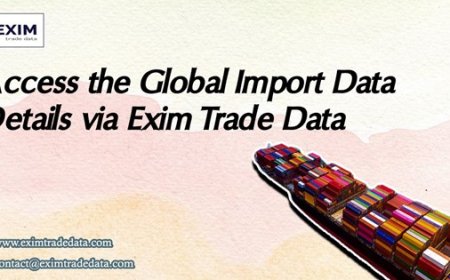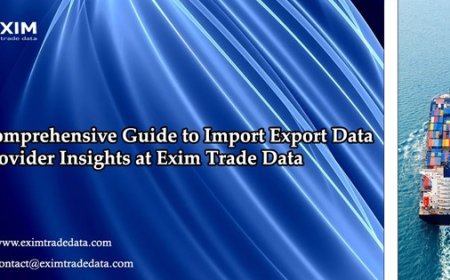Maximize Success with B2B Supply Chain Management

In the rapidly evolving digital marketplace,B2B Supply Chain Management
has become a critical component of business efficiency and long-term success. Companies that adopt advanced strategies to manage their B2B supply chains not only reduce operational costs but also enhance customer satisfaction and market competitiveness.
Understanding the full scope of B2B supply chain management is crucial in todays dynamic global environment, where buyer expectations are high and demand volatility can disrupt traditional models. This blog explores key topic clusters such as integration, collaboration, automation, visibility, and performance metrics to ensure success.
1. Strategic Integration in B2B Supply Chain Management
One of the foundational pillars of B2B supply chain management is strategic integration. When all departments from procurement and production to distribution and customer service operate on a shared digital infrastructure, businesses can eliminate silos and achieve end-to-end efficiency.
Seamless integration includes syncing Enterprise Resource Planning (ERP) systems with Customer Relationship Management (CRM) and Warehouse Management Systems (WMS). This unified ecosystem facilitates data accuracy, streamlined workflows, and improved response time across the supply chain.
Strategic integration also helps in real-time forecasting, demand planning, and resource allocation. When each function has access to consistent data, decision-making becomes proactive rather than reactive.
2. Real-Time Visibility and Data-Driven Decision Making
Visibility is key in effective B2B supply chain management. Organizations must have a 360-degree view of their logistics, inventory levels, supplier activities, and customer demand. Real-time data provides the insights necessary to pivot strategies and avoid bottlenecks.
IoT sensors, RFID tracking, and cloud-based dashboards empower companies to gain real-time updates on supply chain movement. When paired with predictive analytics, businesses can foresee disruptions, assess risk, and optimize delivery schedules.
Companies using real-time visibility platforms report lower freight costs, fewer stockouts, and increased customer satisfaction, all of which are crucial for sustaining a competitive edge in B2B operations.
3. Supplier Collaboration and Relationship Management
B2B supply chain management thrives on strong supplier partnerships. Businesses that prioritize collaborative supplier relationships often see more consistent supply levels, better pricing, and faster issue resolution.
Advanced supplier portals and shared forecasting tools allow both parties to stay aligned on production timelines, demand fluctuations, and quality standards. This transparency reduces the friction of miscommunication and helps in jointly identifying growth opportunities.
Effective B2B supply chain management emphasizes continuous supplier evaluation, using performance scorecards to monitor delivery times, cost variations, and compliance with sustainability standards.
4. Automating the Supply Chain: From Procurement to Fulfillment
Automation plays a vital role in streamlining B2B supply chain management. Manual processes are prone to error and inefficiency. By leveraging AI, robotic process automation (RPA), and machine learning, businesses can reduce human dependency and enhance accuracy.
Some key areas where automation creates value:
-
Order Management: Automated order processing reduces delays and ensures fulfillment accuracy.
-
Inventory Replenishment: Smart inventory systems auto-replenish stock based on real-time usage patterns.
-
Invoice Reconciliation: Automated three-way matching ensures that purchase orders, receipts, and invoices align before payment.
With automation, businesses gain speed, scalability, and cost-efficiency all crucial elements of a successful B2B supply chain strategy.
5. Demand Forecasting and Inventory Optimization
Accurate forecasting lies at the heart of B2B supply chain management. Using historical data, seasonal trends, and customer behavior, businesses can anticipate demand more accurately and align inventory levels accordingly.
Overstocking ties up working capital, while understocking leads to lost sales and damaged relationships. Machine learning algorithms are now being employed to analyze sales velocity, supplier lead times, and external factors such as market shifts or economic trends to optimize inventory.
Tools like predictive analytics and Sales & Operations Planning (S&OP) systems ensure that procurement decisions align with actual market demand, not just estimates. This balance between demand and supply is essential for operational efficiency and profitability.
6. Logistics and Distribution Network Optimization
The physical movement of goods is a central element of B2B supply chain management. Efficient logistics networks reduce transit time, cut fuel expenses, and improve customer experience.
Businesses need to diversify distribution centers, integrate transportation management systems (TMS), and work with reliable third-party logistics providers (3PLs). Route optimization algorithms can recommend the fastest and most cost-effective shipping paths.
Additionally, last-mile delivery often considered a consumer-centric concern is now gaining importance in the B2B world, especially with increasing buyer expectations for speed and precision.
7. Risk Management in B2B Supply Chain Management
Disruptions like natural disasters, political instability, and cyber threats can cripple the supply chain. Proactive B2B supply chain management involves identifying, assessing, and mitigating potential risks before they materialize.
Companies must develop contingency plans, maintain buffer stocks, diversify supplier bases, and invest in cybersecurity to safeguard their operations. Scenario modeling tools help organizations prepare for best- and worst-case supply chain scenarios.
A resilient supply chain isnt just reactive; its adaptive. Businesses must constantly monitor risks and evolve their strategies to ensure minimal disruption and consistent delivery performance.
8. Sustainability and Ethical Sourcing in Supply Chains
Environmental, Social, and Governance (ESG) factors are increasingly influencing B2B supply chain management strategies. Businesses are under pressure to adopt sustainable practices, reduce carbon emissions, and ensure ethical sourcing across the supply chain.
This includes:
-
Choosing suppliers that follow fair labor practices
-
Reducing packaging waste
-
Implementing energy-efficient logistics
-
Adopting circular supply chain models
Sustainability isnt just about compliance its a competitive advantage. Buyers and stakeholders prefer working with environmentally responsible partners, which builds long-term trust and brand reputation.
9. Performance Metrics and KPIs for Continuous Improvement
What gets measured gets improved. Successful B2B supply chain management relies heavily on tracking performance through key performance indicators (KPIs). These metrics provide tangible insights into what's working and where improvements are needed.
Common KPIs in B2B supply chains include:
-
On-time delivery rate
-
Order accuracy
-
Inventory turnover
-
Supplier lead times
-
Freight cost per unit
By continually monitoring and benchmarking these metrics, businesses can refine processes, lower costs, and boost service quality.
10. The Role of Technology in Transforming Supply Chains
Technology is no longer an optional add-on it's the backbone of modern B2B supply chain management. Cloud computing, AI, IoT, and blockchain are transforming how supply chains operate.
-
Cloud Platforms provide accessibility, scalability, and data integrity.
-
Blockchain enables traceability and trust among supply chain partners.
-
IoT Devices offer real-time tracking, temperature monitoring, and equipment health insights.
-
AI & ML optimize everything from route planning to supplier selection and demand forecasting.
Tech-enabled supply chains are agile, data-driven, and future-ready essential traits for any B2B enterprise aiming to stay competitive in 2025 and beyond.
Read the Full Blog Now @ https://acceligize.com/featured-blogs/effective-b2b-supply-chain-management-for-success/
About Us
Acceligize is a global leader in B2B demand generation and intent-driven marketing solutions. With a focus on delivering hyper-targeted, high-intent leads, Acceligize empowers brands to align their marketing strategies with actual buyer behavior. Through AI-powered targeting, advanced content syndication, and precision data insights, we help businesses scale efficiently and connect with decision-makers when it matters most. Trust Acceligize to drive smarter B2B marketing that delivers real results at speed and scale.
































